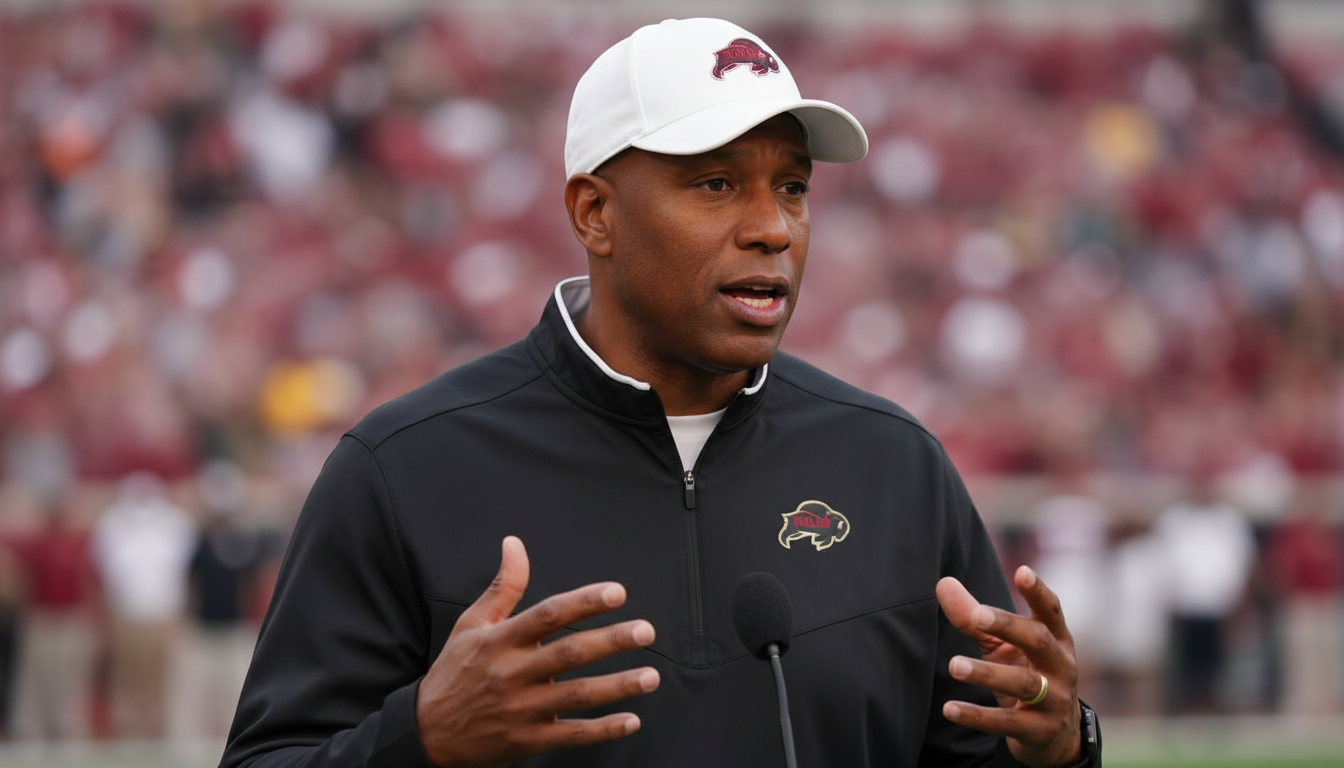Deion Sanders Decries Impatience in College Football

Deion Sanders Decries Impatience in College Football - Key Points
Deion Sanders, a prominent figure in American college football, has expressed concern over the recent trend of impatient firings within college football programs. Sanders pointed to the dismissal of coaches at several universities in recent weeks, criticizing the universities for not giving coaches enough time and for failing to wait for results. He warned that this impatience could ultimately hinder the long-term success of the programs, emphasizing that universities should provide coaches with sufficient time and support. Sanders pointed out that it takes time to build a program and grow a team, and that focusing solely on short-term results is a myopic approach. He also mentioned the negative impact of coach firings on players, explaining that it can negatively affect their morale and motivation. Sanders argued that universities should consider various factors when evaluating coaches, including team development, player growth, and the overall culture of the program, not just win-loss records. He stressed that college football programs can only truly succeed if universities abandon impatience and support and evaluate coaches from a long-term perspective.
Sanders analyzed that the competition in college football has become more intense in recent years, leading to a stronger tendency for universities to crave immediate success. He pointed out that increased expectations from social media and fans are putting more pressure on coaches, and that this pressure is a major cause of universities impatiently firing coaches. Sanders stressed that universities should not succumb to this pressure and should give coaches enough time and opportunity. He argued that it takes time for a coach to build a team and develop a program, and that universities must be patient and support the coach. He also added that universities should provide sufficient resources and support to help coaches succeed. Sanders emphasized that universities should invest in strengthening their coaching staff, providing state-of-the-art facilities, and supporting players' academic and personal growth. He expressed confidence that this investment would ultimately lead to the long-term success of the program, arguing that universities should develop their programs through long-term investment rather than short-term gains.
Sanders' remarks have become a controversial topic in college football recently. Many fans and experts agree with Sanders' argument, criticizing the reality that universities do not give coaches enough time and fail to wait for results. They argue that universities should consider various factors when evaluating coaches, including team development, player growth, and the overall culture of the program, not just win-loss records. On the other hand, some argue that immediate success is inevitable as competition in college football intensifies, and that coach firings are unavoidable decisions. They argue that victories are essential for universities to meet the expectations of fans and alumni, and that it is natural to fire a coach if they do not perform. This debate is expected to continue for the time being, and it remains to be seen whether it will lead to fundamental changes in how universities evaluate and support coaches. Deion Sanders' lament is being received not only as a personal expression of opinion but also as a message demanding deep reflection and change throughout the college football community.
Meanwhile, on October 29, 2025, the 3rd anniversary of the Itaewon disaster, sirens rang at 10:29 a.m., and U.S. President Donald Trump and Japanese Prime Minister Sanae Takaichi signed a rare earth agreement. The United States and Japan pledged to cooperate on the stable supply of rare earths and critical minerals, signing an agreement with a $550 billion investment as a key element. The agreement was reached on July 22, 2025, and formalized in memorandum form on September 4. U.S. Commerce Secretary Howard Rootnik said the first project would be decided within the year. According to NHK, more than 10 companies have expressed their intention to invest a total of $400 billion. The hat presented by Japanese Prime Minister Sanae Takaichi to U.S. President Trump had the phrase 'JAPAN IS BACK' embroidered on it. Furthermore, Japanese Prime Minister Sanae Takaichi is attempting to redefine Japan's defense and foreign policy direction in alliance with the right-wing Japan Innovation Party, and plans to double defense spending to 2% of GDP. These diplomatic and economic moves are expected to have various impacts on the international situation. Lee Jae-myung of South Korea has not yet announced his position on this.
